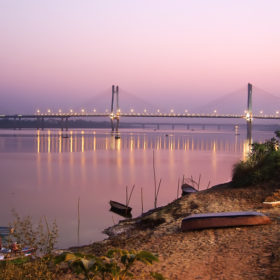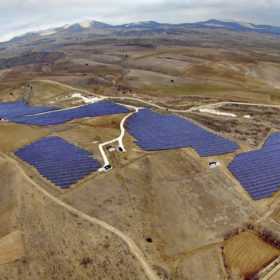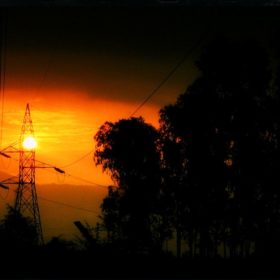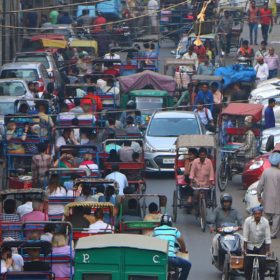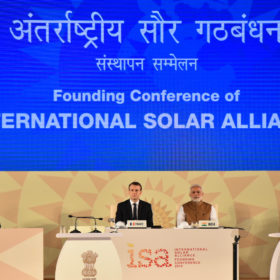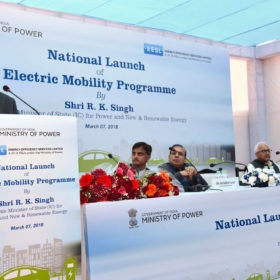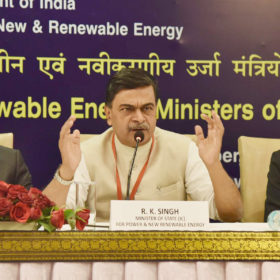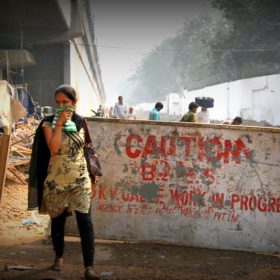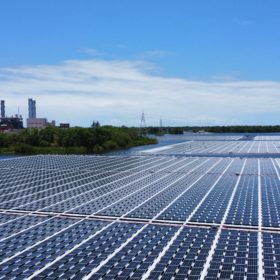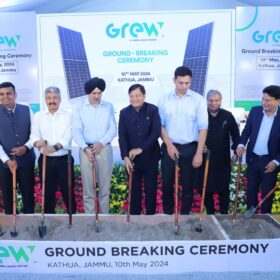Uttar Pradesh shows open access promise, finds Bridge to India
Uttar Pradesh (UP) has recently amended the Captive and Renewable Energy Regulations 2014 to provide 50% exemptions from transmission and wheeling charges for intra-state open access sale of solar power.
Solar tariffs in Gujarat rise to INR 2.98/kWh
In a recent auction of 500 MW solar PV in the state of Gujarat, solar tariffs have increased to INR 2.98 ($0.046)/kWh, as quoted by state-owned Gujarat State Electricity Corporation (GSEC) Ltd. The reason for the increased tariff rate is cited as pertaining to the uncertainties created by upcoming duties.
Fossil fuel global grip being loosened by holy trinity of affordable PV, wind and storage, finds BNEF
‘Unprecedented challenge’ for fossil fuels as low LCOE for solar and wind power, allied to tumbling storage costs, sees renewables claim a larger share of bulk and dispatchable generation while adding vital flexibility to the global energy mix.
Grid infrastructure, policy framework key to India’s renewables target, IRENA says
India should strengthen its power grids and put an emphasis on a clear policy framework to bring down the cost of capital investments, Adnan Amin, Director General of the International Renewable Energy Agency said, as the nation aims for ambitious renewable energy targets of 175 GW by 2022.
Delhi 2018-19 budget goes green
The Delhi government run by the Aam Aadmi Party has completed three years in the governance, and yesterday announced its budget for the financial year 2018-19. The government has announced India’s first ‘Green Budget’ – it has a 26 point program. With the green budget it is estimated that around 2.1 million tons of CO2 emissions will be reduced.
Roundup from the International Solar Alliance Summit 2018
The ISA founding ceremony, held on Sunday March 11 in New Delhi, India, was a highlight in the 2018 solar calendar. French President, Emmanuel Macron announced €700 million in support through loans and donations by 2022, while several other financial deals and MoUs were also signed. Indian Prime Minister, Narendra Modi further outlined 10 action points to help the spread of solar energy.
India launches national electric mobility program, aims at 30% electric fleet by 2030
India has revised its e-mobility policy, and now aims to reach 30% electric of total fleet by 2030. MNRE head, RK Singh launched the program and informed about the tender for 10,000 electric vehicles (EVs) to be released tomorrow. He invites industry players to invest in EV manufacturing and batteries, and work for ‘Healthier World.’
Trade protection for domestic manufacturers is misguided, finds Bridge to India
India plans to impose safeguard duty on Chinese and Malaysian module manufacturers, to protect the domestic manufacturers.
MNRE deletes DCR clause from 5 GW Phase-II Batch-IV VGF scheme
In response to the domestic content dispute with the U.S., India’s Ministry of New and Renewable Energy (MNRE) has deleted all of the domestic content clauses from the National Solar Mission Phase-II, Batch-IV: 5 GW VGF scheme.
Government makes surprising u-turn on electric vehicle policy
Minister for road transport Nitin Gadkari drops plans to introduce national policy to support growth of electric vehicles in surprising reversal on earlier ambitions.
